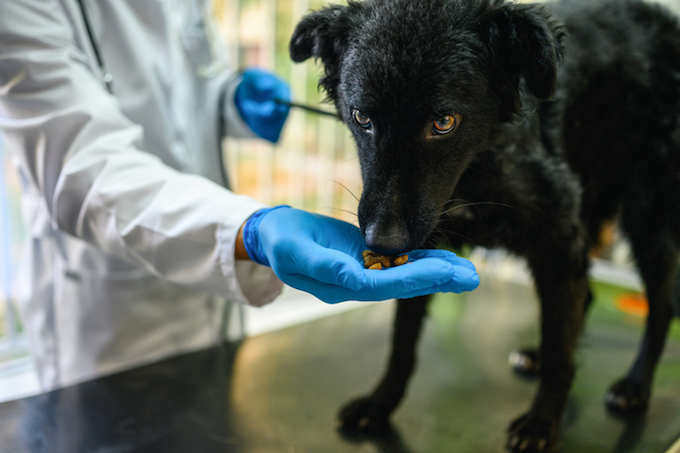Exocrine pancreatic insufficiency in dogs affects the pancreas. Usually, the condition happens when a dog doesn’t produce enough digestive hormones.
Subsequently, the condition causes most dogs to lose weight. Ultimately, a dog might starve due to the condition.
The condition is usually abbreviated to EPI.
Unfortunately, EPI has no cure at the moment.
Also, they might sound very similar, but exocrine pancreatic insufficiency in dogs is a different condition to exocrine pancreatic cancer.
If you see the signs of EPI in your dog, then get to a veterinarian for a proper diagnosis and treatment.
Here’s what you should know about the symptoms, causes, and treatments for the condition.
Symptoms of EPI in Dogs
EPI in dogs produces a range of symptoms. Mostly, a dog cannot properly break down the food it eats. In some cases, a dog might end up starving.
Some of the other most common symptoms include:
- Having a bigger appetite than usual
- Gas
- Greasy diarrhea
- Eating poop
- Bad coat and skin condition
Causes of EPI in Dogs

Technically, there are a few causes of the condition. Some of the most common causes include:
- An inflamed pancreas
- Inheriting the condition
- Vitamin B12 deficiency
Additionally, very young dogs seem to sometimes suddenly develop the condition.
In general, the German Shepherd dog breed seems very prone to developing it. Some of the other larger dogs that are also most likely to suffer from the condition include:
- Akitas
- Chow Chows
- Australian Sheepdogs
- Cavalier King Charles Spaniels
- Border Collies
Treatments for EPI in Dogs
Firstly, your vet will want to ask lots of questions about your dog’s breed and medical history.
Secondly, special blood tests will be used to detect the condition. Specifically, a test called Trypsin-Like Immunoreactivity (TLI) is used to monitor the amount of enzymes produced by the pancreas.
In general, treatment for the condition involves supplements. These supplements provide the digestive enzymes that your dog’s body is missing. Your vet will recommend the best enzyme supplement for your dog.
In most cases, the supplements come in powder form. You can sprinkle them on your dog’s normal meals. In other cases, tablets may be used.
As always, stick to the exact dose and frequency instructions your vet gives you for any supplements. Also, complete the full course of medicine.
Finally, during recovering your vet will likely suggest dietary changes for your dog. The precise changes will depend on your dog’s breed, age, and health.
Have you ever cared for a dog who suffered from this condition? How did your vet help your dog recover? Let us know in the comments section below.





